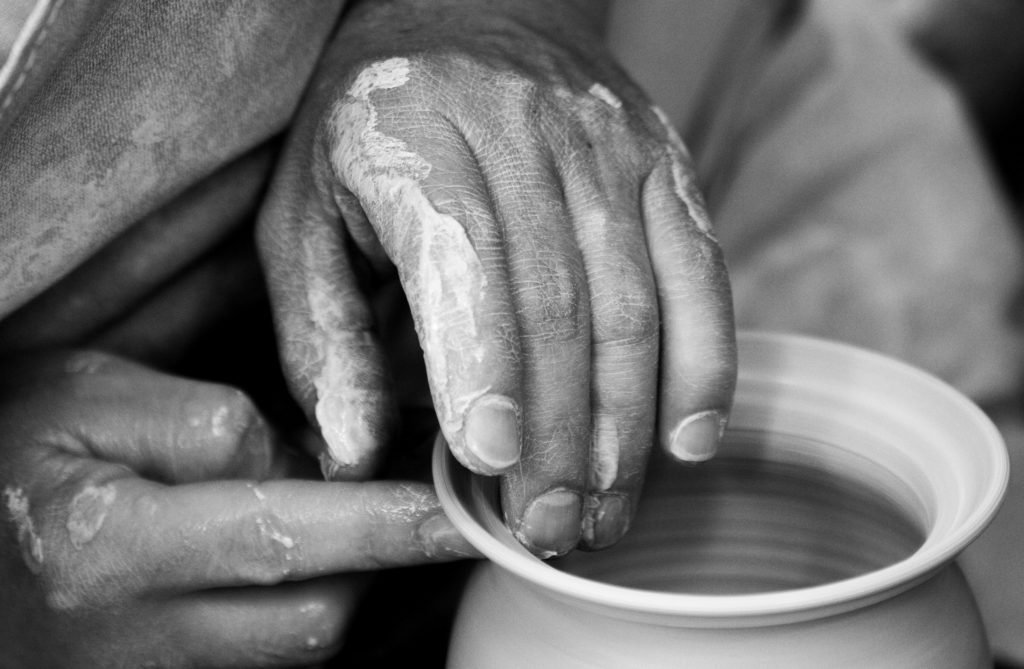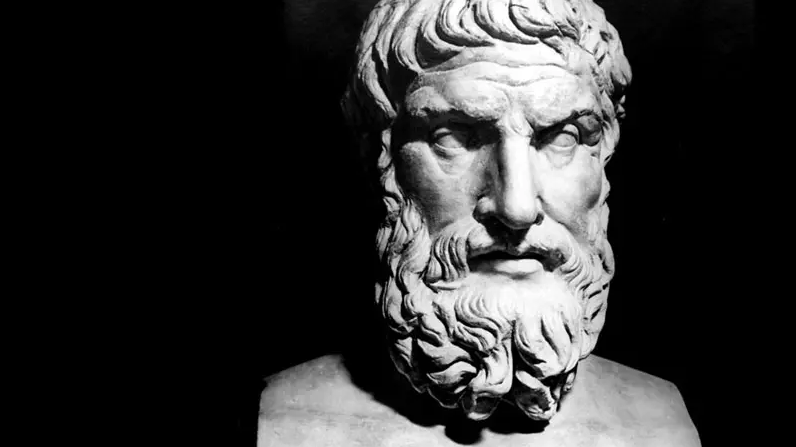“Yet even now, says the Lord, return to me with all your heart.” -Joel 2:12
While God continually extends this invitation to return to Him at all times — each day, no matter where we are or what we have done — it is particularly pronounced during the Lenten season, as we engage in a period of self-reflection and preparation for the celebration of the death and resurrection of Jesus Christ.
During this time, we are often invited to “go deeper” with God, denying self and surrendering and submitting to Him and His will, as Jesus modeled for us during the 40 days of temptation in the wilderness.
We tend to struggle with the words “surrender” and “submit” — they’re hard for us to live out. As human beings with our own wills and desires, we often allow our flesh to be in control, dictating our actions, behaviors and thoughts.
Yet, time and again, in both scripture and spiritual literature, we hear about the importance of surrendering.
“Submission to God is eternal rest,” wrote Irenaeus of Lyon, a leading Christian theologian from the 2nd century.
St. Augustine, the great theologian from the 4th century, wrote in his autobiography Confessions: “Restless is our heart until it comes to rest in you.”
Below are some thoughts from these and other spiritual giants, elaborating on the theme of surrender and submission.
It is my prayer that they may bless you as we enter the season of Lent, beckoning us to accept the invitation to return to the One who loved us into being — and whose love for us never runs out — wherever we may be on our life journey.
Comparing us to clay and God to a potter, Irenaeus of Lyon wrote in Against Heresies:
“You do not make God; God makes you. If you are God’s artifact, then wait for the hand of the Master which makes everything at the proper time, at the time proper for you who are being created. Offer him a soft and malleable heart; then keep the shape in which the Master molds you. Retain your moisture, so that you do not harden and lose the imprint of his fingers. By preserving your structure you will rise to perfection. God’s artistry will conceal what clay is in you. His hand fashioned a foundation in you; he will cover you inside and out with pure gold and silver. He will so adorn you that the King himself will desire your beauty.”

From the desert fathers, as recorded in Thomas Merton’s The Wisdom of the Desert:
“An elder was asked: What does it mean, this word we read in the Bible, that the way is strait and narrow? And the elder replied: This is the strait and narrow way: that a man should do violence to his judgments and cut off, for the love of God, the desires of his own will. This is what was written of the Apostles: Behold we have left all things and have followed Thee.”
Danish philosopher and theologian Søren Kierkegaard wrote in The Lily of the Field and the Bird of the Air:
“Would that in silence you might forget yourself, your plans, the great, all-encompassing plans, or the limited plans concerning your life and its future, in order in silence to pray to God, ‘Your kingdom come!’ Would that you might in silence forget your will, your willfulness, in order in silence to pray to God, ‘Your will be done!’ Yes, if you could learn from the lily and the bird to become utterly silent before God, what, then, wouldn’t the gospel be able to help you do – then nothing would be impossible for you.”
St. Augustine, Christian theologian from the 4th century, wrote in Confessions:
“Rest in him and you shall be at rest…[t]he good that you love is from him, and insofar as it is also for him, it is both good and pleasant. But it will rightly be turned to bitterness if whatever comes from him is not rightly loved and if he is deserted for the love of the creature. Why then will you wander farther and farther in these difficult and toilsome ways? There is no rest where you seek it. Seek what you seek; but remember that it is not where you seek it. You seek for a blessed life in the land of death. It is not there. For how can there be a blessed life where life itself is not?”
[…]
“For our stability, when it is in you, is stability indeed; but when it is in ourselves, then it is all unstable. Our good lives forever with you, and when we turn from you with a version, we fall into our own perversion.”
The Greek Stoic philosopher Epictetus wrote, as recorded in The Art of Living:
“Fix your resolve on expecting justice and goodness and order, and they will increasingly reveal themselves to you in all your affairs. Trust that there is a divine intelligence whose intentions direct the universe. Make it your utmost goal to steer your life in accordance with the will of divine order.
When you strive to conform your intentions and actions with the divine order, you don’t feel persecuted, helpless, confused, or resentful toward the circumstances of your life. You will feel strong, purposeful, and sure.
Faithfulness is not blind belief; it consists of steadfastly practicing the principle of shunning those things which are not within your control, leaving them to be worked out according to the natural system of responsibilities. Cease trying to anticipate or control events. Instead accept them with grace and intelligence.”

Archbishop Desmond Tutu said, as recorded in The Book of Joy:
“We are meant to live in joy. This does not mean that life will be easy or painless. It means that we can turn our faces to the wind and accept that this is the storm we must passthrough. We cannot succeed by denying what exists. The acceptance of reality is the only place from which change can begin.”
The renowned late author Flannery O’Connor once wrote in her prayer journal:
“I do not know you God because I am in the way. Please help me to push myself aside. […] Take me, dear God, and set me in the direction I am to go.”

We can end with this prayer, taken from the Wesleyan tradition:
I am no longer my own, but thine.
Put me to what thou wilt
Put me to doing, put me to suffering.
Let me be employed by Thee or laid aside for Thee,
Exalted for Thee or brought low for Thee.
Let me be full, let me be empty.
Let me have all things, let me have nothing.
I freely and heartily yield all things to thy pleasure and disposal.
And now, O Glorious and blessed God, Father, Son, and Holy Spirit,
Thou art mine, and I am thine.
So be it.
And the covenant which I have made on earth, Let it be ratified in heaven.
Amen.
Similar posts:
- Epictetus on Willing What God Wills — or Doesn’t Will
- Letting Go: The Bhagavad Gita on the Importance of Non-attachment
- Gisele Bündchen on Self-Awareness, Challenging Your Thoughts and Paying Attention to Your Inner Voice
- “I Love the Word Impossible”: Ann Kiemel on Our “Giant of a God”
- Think Carefully: Marcus Aurelius on How to Control the Mind
- Martin Luther King, Jr.: Sometimes to Move Forward, We Have to Go Backward


A wonderful post to begin Lent. I especially liked the writing of Epictetus. Wise words for today’s world. Thank you.
Thank you, Mary Lou! I’m so glad you enjoyed it. Thanks for reading.